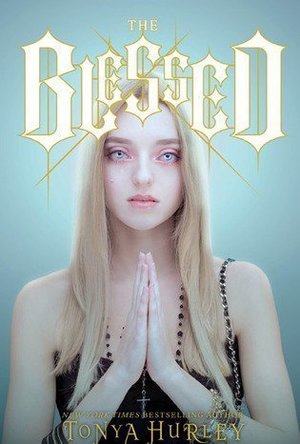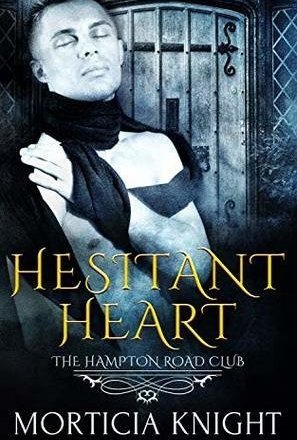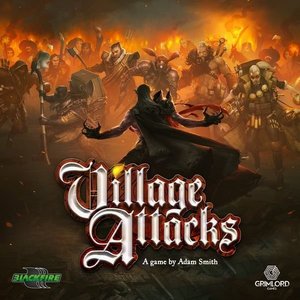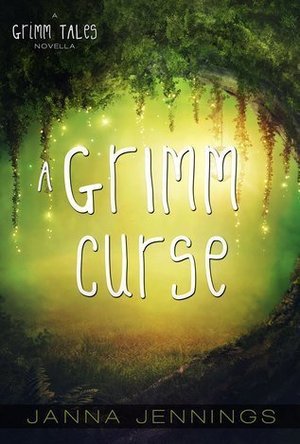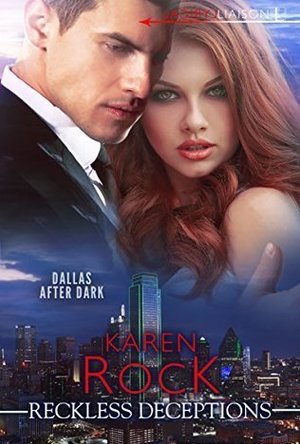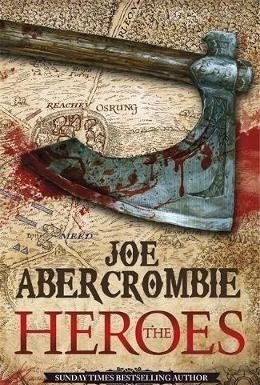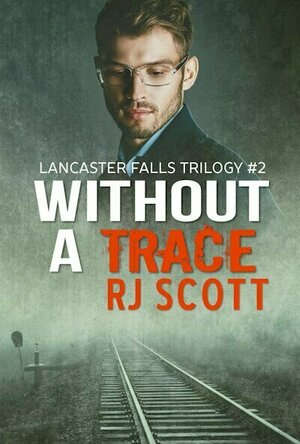Search
Search results
Sensitivemuse (246 KP) rated Precious Blood (The Blessed, #1) in Books
Nov 3, 2018
Not for everyone, but I enjoyed it
What I liked about this book is it was able to draw you in slowly to the plot and it unfolds gradually by introducing you to the main characters and their backgrounds. You can’t help but keep reading to see what will happen next. Your curiosity is piqued and it’s worth reading through. There is a chapter here and there that lets you think ‘Gee what the heck am I reading here’ but it makes up for it wholeheartedly towards the ending of the book.
The plot and the pace is slow but steady. You’re taken through each girl’s perspective and when they finally come together, if you can bypass the pettiness and mean girl attitude (some parts were quite fun to read, the comebacks are something to be filed away for future use should need arise) they actually do make a solid team. Each girl has their own story and their own pain to deal with. Of the three, I’d taken a liking to Cecilia. She’s a tough one and although all three have gone through a substantial amount of pain, Cecilia seems to be the most likable and the most independent (plus she’s a Rocker girl. Who doesn’t think Rocker Girls are cool?)
As the story unfolds, it gets chaotic towards the last third of the novel. Pretty good action - brutal at times so might not be for the faint of heart, and of course it leaves room for more things to come (two books follow after this one). Understandably this book might not be for everyone. Gratuitous swearing, references to Catholicism which may be offensive to some, some serious what the F chapters that make you wonder what kind of shrooms they’re on, and references to rape are mentioned in the book.
So while it may not be for everyone, I was surprised that I enjoyed reading this one so much. Although it took awhile for the book to gain momentum and this thing with Sebastian being a somewhat Charles Manson wannabe without the murders is a bit tedious, it was actually pretty good. However it comes across as a book that either you’ll really like, or you’ll really hate. So, when in doubt, just take it out of the library and save your money for other things.
The plot and the pace is slow but steady. You’re taken through each girl’s perspective and when they finally come together, if you can bypass the pettiness and mean girl attitude (some parts were quite fun to read, the comebacks are something to be filed away for future use should need arise) they actually do make a solid team. Each girl has their own story and their own pain to deal with. Of the three, I’d taken a liking to Cecilia. She’s a tough one and although all three have gone through a substantial amount of pain, Cecilia seems to be the most likable and the most independent (plus she’s a Rocker girl. Who doesn’t think Rocker Girls are cool?)
As the story unfolds, it gets chaotic towards the last third of the novel. Pretty good action - brutal at times so might not be for the faint of heart, and of course it leaves room for more things to come (two books follow after this one). Understandably this book might not be for everyone. Gratuitous swearing, references to Catholicism which may be offensive to some, some serious what the F chapters that make you wonder what kind of shrooms they’re on, and references to rape are mentioned in the book.
So while it may not be for everyone, I was surprised that I enjoyed reading this one so much. Although it took awhile for the book to gain momentum and this thing with Sebastian being a somewhat Charles Manson wannabe without the murders is a bit tedious, it was actually pretty good. However it comes across as a book that either you’ll really like, or you’ll really hate. So, when in doubt, just take it out of the library and save your money for other things.
Debbiereadsbook (1647 KP) rated Hesitant Heart (The Hampton Road Club #1) in Books
Nov 30, 2018
really loved this!
Independent reviewer for Archaeolibrarian, I was gifted my copy of this book.
Naive runaway Sam finds himself in a bathhouse as a job. Aaron frequents the bathhouse, and has noticed that Sam has noticed him. When Sam finds himself in a bit of a pickle, Aaron's baser instincts kick in, and his protectiveness goes into overdrive. Is Sam really the submissive Aaron has been waiting for? Will Sam run again, when he understands what Aaron wants??
Thank you, Ms Knight, for a thoroughly enjoyable historical BDSM book! It's been a long time since I read such a book, and I loved this one!
Sam is truly naive, totally, in all ways, a virgin. He knows he doesn't like girls, at all, and he knows Aaron makes him think and feel all kinds of things he never did before, but Sam also knows he NEEDS something else, something he isn't able to voice. When Aaron begins Sam's training as his submissive, the penny drops and Sam fully immerses himself into Aaron's world, one training session at a time.
I loved that Aaron, while fully on board with Sam's "lets have sex now" attitude, he waits. He waits til Sam is really ready for that step. And once they do take that step? Both men fall fast and hard.
I loved that I found it not overly explicit, for some weird reason! It goes into detail, about training and what Sam and Aaron are doing, and it's hot hot hot, but not explicit, if that makes any sense! Reading that bit back, it doesn't, for me, but I can't word it any different! But I needed to say that, and that I loved it.
The way Aaron and Saul, Aaron's friend, deal with Sam's father was well done, and in a way that no one was hurt, and Sam could walk free from the fear that his father represented.
It is set in the 1920s so comes with all the rules and regulations and words of the time. And I really enjoyed that!
Book one in the Hampton Road Club series. I do hope I get to read the rest of them!
Thank you, Ms Knight, for my copy!
5 stars
**same worded review will appear elsewhere**
Naive runaway Sam finds himself in a bathhouse as a job. Aaron frequents the bathhouse, and has noticed that Sam has noticed him. When Sam finds himself in a bit of a pickle, Aaron's baser instincts kick in, and his protectiveness goes into overdrive. Is Sam really the submissive Aaron has been waiting for? Will Sam run again, when he understands what Aaron wants??
Thank you, Ms Knight, for a thoroughly enjoyable historical BDSM book! It's been a long time since I read such a book, and I loved this one!
Sam is truly naive, totally, in all ways, a virgin. He knows he doesn't like girls, at all, and he knows Aaron makes him think and feel all kinds of things he never did before, but Sam also knows he NEEDS something else, something he isn't able to voice. When Aaron begins Sam's training as his submissive, the penny drops and Sam fully immerses himself into Aaron's world, one training session at a time.
I loved that Aaron, while fully on board with Sam's "lets have sex now" attitude, he waits. He waits til Sam is really ready for that step. And once they do take that step? Both men fall fast and hard.
I loved that I found it not overly explicit, for some weird reason! It goes into detail, about training and what Sam and Aaron are doing, and it's hot hot hot, but not explicit, if that makes any sense! Reading that bit back, it doesn't, for me, but I can't word it any different! But I needed to say that, and that I loved it.
The way Aaron and Saul, Aaron's friend, deal with Sam's father was well done, and in a way that no one was hurt, and Sam could walk free from the fear that his father represented.
It is set in the 1920s so comes with all the rules and regulations and words of the time. And I really enjoyed that!
Book one in the Hampton Road Club series. I do hope I get to read the rest of them!
Thank you, Ms Knight, for my copy!
5 stars
**same worded review will appear elsewhere**
Brumpolarbears (22 KP) rated Village Attacks in Tabletop Games
Jun 18, 2019
UK Games Expo 2018 was filled to the brim with new and shiny games, but one of our stand out picks was a cooperative castle defence game, with a twist. In Village Attacks, you take on the role of some of the most infamous and feared folklore legends. What could go wrong?
Set within the depths of a particularly immense castle, you and your fellow villains must defend your home from the local villagers who are laying siege to your home in an effort to exorcise your evil from the world.
Although the villagers themselves may be weak, they aren’t alone. Hunters and heroes from across the world have come to lend sword, shield and gun to rid the world of your taint.
The castle interior is constructed using a modular tile system made up from beautifully illustrated game tiles that allow for near limitless combinations and layouts. The villagers will attempt to reach the heart of the castle and destroy it, but they must be stopped! Only by slaying enough villagers and breaking their morale will you be able to drive them from your home for good.
The brainchild of two friends, Adam Smith and Mike Brown of Grimlord Games, an independent developer of tabletop games, Village Attacks uses custom dice to control the outcome of your turn. Dice results can be used to move your monster, activate your abilities, purchase traps, defend yourself from incoming attacks and even be stored for the next round.
Each monster possesses their own unique abilities that they are able to level up by slaying villagers and completing objectives. Monsters are categorised into types, which can affect how they interact with the enemy forces. Hunters and Town Heroes deal extra damage to monsters that match their types, creating another level of strategy and planning.
I had the opportunity to give Village Attacks a whirl at UK Games Expo and I really did fall in love with it. I’m a sucker for a good miniature and this has plenty of options, particularly if you backed the Kickstarter. While the game itself comes with a lot of components (see the list below), it’s fairly quick to get into. Once the heroes and hunters take to the board, that’s when things really start to heat up. This one is certainly going on the wish list.
Set within the depths of a particularly immense castle, you and your fellow villains must defend your home from the local villagers who are laying siege to your home in an effort to exorcise your evil from the world.
Although the villagers themselves may be weak, they aren’t alone. Hunters and heroes from across the world have come to lend sword, shield and gun to rid the world of your taint.
The castle interior is constructed using a modular tile system made up from beautifully illustrated game tiles that allow for near limitless combinations and layouts. The villagers will attempt to reach the heart of the castle and destroy it, but they must be stopped! Only by slaying enough villagers and breaking their morale will you be able to drive them from your home for good.
The brainchild of two friends, Adam Smith and Mike Brown of Grimlord Games, an independent developer of tabletop games, Village Attacks uses custom dice to control the outcome of your turn. Dice results can be used to move your monster, activate your abilities, purchase traps, defend yourself from incoming attacks and even be stored for the next round.
Each monster possesses their own unique abilities that they are able to level up by slaying villagers and completing objectives. Monsters are categorised into types, which can affect how they interact with the enemy forces. Hunters and Town Heroes deal extra damage to monsters that match their types, creating another level of strategy and planning.
I had the opportunity to give Village Attacks a whirl at UK Games Expo and I really did fall in love with it. I’m a sucker for a good miniature and this has plenty of options, particularly if you backed the Kickstarter. While the game itself comes with a lot of components (see the list below), it’s fairly quick to get into. Once the heroes and hunters take to the board, that’s when things really start to heat up. This one is certainly going on the wish list.
Hazel (1853 KP) rated A Grimm Curse (Grimm Tales #3) in Books
Dec 17, 2018
<i>This eBook was provided by the publisher via NetGalley in exchange for an honest review </i>
Janna Jennings’ latest book, <i>A Grimm Curse</i>, is set long before the previous two novellas in <i>A Grimm Tales</i> series. Rather than focusing on Andi, a girl from the “real” world, this is a story about the characters in the fairytales – most importantly Cynthia or, whom readers may know her better as, Cinderella.
As in the traditional tale, Cynthia works as a slave for her horrible stepmother and stepsisters – a fate she succumbed to after the death of her father. There is also an upcoming ball at the palace for the prince who is seeking a bride. This, however, is where the similarities end. As well as <i>Cinderella</i>, other fairytales make their appearance, particularly <i>The Frog Prince </i>and <i>Rapunzel</i>. But something is unsettling the characters; they are experiencing bad dreams. Or are they memories?
Cynthia is a much more admirable character than the original Cinderella. She is clever, determined and independent – she does not need a fairy godmother for a start! Neither has she any interest in the prince. If she is going to escape from servitude it will be by her own dexterity, rather than her reliance on someone else to save her.
<i>A Grimm Curse</i> can work as a prequel to the first in the series as it sets the scene that Andi will come across. It can also survive as a stand alone as there is no reference to the events of the other books, however knowledge of these will help the ending make more sense.
Personally I preferred <i>A Grimm Curse</i> to the stories that Jennings’ previously wrote. I had misgivings about the author’s use of fairytales that were not one of those collected by the <i>Brothers Grimm</i>. The tales in this book were, however, so therefore fit better with the title.
I strongly recommend this story to readers – adult and adolescent – who are still in love with fairytales or retellings. It is as though it is written with feminism in mind as the heroine does not need a man to rescue her, thus is in keeping with modern times rather than the time period of the originals.
Janna Jennings’ latest book, <i>A Grimm Curse</i>, is set long before the previous two novellas in <i>A Grimm Tales</i> series. Rather than focusing on Andi, a girl from the “real” world, this is a story about the characters in the fairytales – most importantly Cynthia or, whom readers may know her better as, Cinderella.
As in the traditional tale, Cynthia works as a slave for her horrible stepmother and stepsisters – a fate she succumbed to after the death of her father. There is also an upcoming ball at the palace for the prince who is seeking a bride. This, however, is where the similarities end. As well as <i>Cinderella</i>, other fairytales make their appearance, particularly <i>The Frog Prince </i>and <i>Rapunzel</i>. But something is unsettling the characters; they are experiencing bad dreams. Or are they memories?
Cynthia is a much more admirable character than the original Cinderella. She is clever, determined and independent – she does not need a fairy godmother for a start! Neither has she any interest in the prince. If she is going to escape from servitude it will be by her own dexterity, rather than her reliance on someone else to save her.
<i>A Grimm Curse</i> can work as a prequel to the first in the series as it sets the scene that Andi will come across. It can also survive as a stand alone as there is no reference to the events of the other books, however knowledge of these will help the ending make more sense.
Personally I preferred <i>A Grimm Curse</i> to the stories that Jennings’ previously wrote. I had misgivings about the author’s use of fairytales that were not one of those collected by the <i>Brothers Grimm</i>. The tales in this book were, however, so therefore fit better with the title.
I strongly recommend this story to readers – adult and adolescent – who are still in love with fairytales or retellings. It is as though it is written with feminism in mind as the heroine does not need a man to rescue her, thus is in keeping with modern times rather than the time period of the originals.
Debbiereadsbook (1647 KP) rated Reckless Deceptions (Dallas after Dark #3) in Books
Dec 27, 2018
really rather enjoyed this
Independent reviewer for Archaeolibrarian, I was gifted my copy of this book.
This is book three in the Dallas After Dark series, but you don't need to have read the other two before this: these are very much stand alone books.
After going rogue Erica is working at Dallas Heat, trying to clear her name. Ryan is in town on family business, but also following up his own leads to catch an international terrorist who might be in town. When Erica and Ryan cross paths again, and that terrorist is a little closer to home than they thought, Ryan follows his instincts, going against everything to keep Erica safe.
For the most part, I DID enjoy this. It was mostly the HUGE cast of minor characters who, while needing to be talked about and mentioned, that I struggled to keep up with. So many names I just glanced over, not putting the terrorist threat bit together, at all, but I resigned myself to that and after that, I did enjoy it.
Erica and Ryan have history, and it's clear right from the start that the chemistry they had two years ago is still burning bright and hot. Ryan wanted Erica forever then, but the situation blew up around them and Erica was booted out the CIA and Ryan had a hand in that. He regretted that, but still. Revisiting that chemistry would be a bad thing, but when forced into close contact, trying to stop this terrorist, the inevitable happens. It's not until he nearly loses Erica does Ryan finally get his head out his ass and listen to his HEART!
I loved the banter between these two, it bubbles and simmers along in the book, and I thought they would give in far sooner than they do! Loved that Ryan was finally able to break free of his strict upbringing and to break the control he feels he needs to hang on to, and that it was Erica who made him see that.
Both Erica and Ryan have a say, but Ryan speaks first, and that surprised me for some reason! Rock keeps throwing me for a loop with these books!
Aside from the never ending list of suspects, I DID enjoy this so. . .
4 solid stars
**same worded review will appear elsewhere**
This is book three in the Dallas After Dark series, but you don't need to have read the other two before this: these are very much stand alone books.
After going rogue Erica is working at Dallas Heat, trying to clear her name. Ryan is in town on family business, but also following up his own leads to catch an international terrorist who might be in town. When Erica and Ryan cross paths again, and that terrorist is a little closer to home than they thought, Ryan follows his instincts, going against everything to keep Erica safe.
For the most part, I DID enjoy this. It was mostly the HUGE cast of minor characters who, while needing to be talked about and mentioned, that I struggled to keep up with. So many names I just glanced over, not putting the terrorist threat bit together, at all, but I resigned myself to that and after that, I did enjoy it.
Erica and Ryan have history, and it's clear right from the start that the chemistry they had two years ago is still burning bright and hot. Ryan wanted Erica forever then, but the situation blew up around them and Erica was booted out the CIA and Ryan had a hand in that. He regretted that, but still. Revisiting that chemistry would be a bad thing, but when forced into close contact, trying to stop this terrorist, the inevitable happens. It's not until he nearly loses Erica does Ryan finally get his head out his ass and listen to his HEART!
I loved the banter between these two, it bubbles and simmers along in the book, and I thought they would give in far sooner than they do! Loved that Ryan was finally able to break free of his strict upbringing and to break the control he feels he needs to hang on to, and that it was Erica who made him see that.
Both Erica and Ryan have a say, but Ryan speaks first, and that surprised me for some reason! Rock keeps throwing me for a loop with these books!
Aside from the never ending list of suspects, I DID enjoy this so. . .
4 solid stars
**same worded review will appear elsewhere**
Merissa (13739 KP) rated Wilde's Fire (Darkness Falls, #1) in Books
Dec 17, 2018
WOW! My reading list recently has comprised of paranormal (romance or otherwise) and contemporary romance, so I decided to go back to my first love and read a fantasy book that had been on my t-b-r list for nearly a year. WHY did I wait so long to read this? This is fantasy as it's best. I was hooked in from the start and am now desperate to read the next two in this trilogy. How would you react if you meet the man you've been dreaming of for the past 6 years? Throw on top of that that you're in a whole new world with new rules and new... erm... demons!
Kate is a good main female. She is strong and independent but also has her close circle of her sister and her BFF, Brad. She accepts the new world quite well but does have a minor breakdown when things start becoming clear. To be honest, I don't blame her at all. Even with Arland to soften the blow, she's dealing with a lot and she doesn't even know how Arland feels for her. Flanna joins Kate's close circle as her friend and confidante and helps ease some of the transfer over. Kate is very impressive with a sword even though she has no training but she can't shoot an arrow to save her life! It's nice to have a main female that isn't perfect at everything!
Arland is wonderful. He is doing everything he can to protect Kate from things that she is not even aware of yet. He is proud of her and is already having feelings for her. But there is a lot of pressure on him as the leader of the Watchers Hall and also with undercurrents of power.
The ending is so in tune with the rest of the book. This book does not follow the 'normal' set pattern and instead breaks a new trend within it's pages. I thought the ending finished this book and set up the next book brilliantly. It gives you an idea of what Kate is up against and why. Now I need to read the second book to see 'how'. I loved this book and will definitely be reading the next two. Highly recommended.
Kate is a good main female. She is strong and independent but also has her close circle of her sister and her BFF, Brad. She accepts the new world quite well but does have a minor breakdown when things start becoming clear. To be honest, I don't blame her at all. Even with Arland to soften the blow, she's dealing with a lot and she doesn't even know how Arland feels for her. Flanna joins Kate's close circle as her friend and confidante and helps ease some of the transfer over. Kate is very impressive with a sword even though she has no training but she can't shoot an arrow to save her life! It's nice to have a main female that isn't perfect at everything!
Arland is wonderful. He is doing everything he can to protect Kate from things that she is not even aware of yet. He is proud of her and is already having feelings for her. But there is a lot of pressure on him as the leader of the Watchers Hall and also with undercurrents of power.
The ending is so in tune with the rest of the book. This book does not follow the 'normal' set pattern and instead breaks a new trend within it's pages. I thought the ending finished this book and set up the next book brilliantly. It gives you an idea of what Kate is up against and why. Now I need to read the second book to see 'how'. I loved this book and will definitely be reading the next two. Highly recommended.
Rob P (30 KP) rated The Heroes in Books
Dec 20, 2018
Character Arc (3 more)
Universe exploration and progression
Minor characters from previous trilogy (The First Law) explored to great satisfaction of readers.
Morally very challenging.
The Heroes
First of all I’d like to say that although this is a great read for any fantasy fan, the importance and virtues of this book are enforced greatly by having read Abercrombie’s trilogy; The First Law. That’s not to say it could not be read on its own, the story is dramatic, rich, honest and satisfying. Characters are interesting, morally grey (an Abercrombie staple) and fundamentally human in their relatability.
The story centres on a battle between the empirical Union, or otherwise the seat of power from the south of the continent, and the brutish Northmen united under a legendary fighter, Black Dow. Dow has (presumably) killed, and seized power from the previous lord of war, Logen Ninefingers (also known as The Bloody Nine) and declared the north independent.
In the south, the Union (under guidance and governance from external parties) raises it’s army to march north and deal with this threat, with the two armies set to collide at an old northern monument of stone pillars, known as The Heroes.
Now, for a reader with a severe completion complex, this book is just a warm hug. Leading on from the trilogy that left just enough unanswered to make you need more, this book if anything over-delivers on detail and lends some of its best moments from characters you just didn’t realise you wanted to know more about, or passed you by entirely.
The very best state of mind to go into with this read, is to remember that both story and moral lines are perennially blurred. Every character belongs to one side or the other in theory, but with their own agenda entirely.
Abercrombie, to me, really stands out when it comes to fighting sequences, and there’s no shortage in this offering. He uses point of view accounts from multiple characters, chaining them as they fall or impact the flow of battle, making for a visceral and investing read.
Ultimately, fans of the series or Abercrombie’s works will already have enough to know they want to read this, but if you’re thinking of picking this as a starting point, your bookshelf will be sponsored by Abercrombie before you even know what is happening – Rob.
The story centres on a battle between the empirical Union, or otherwise the seat of power from the south of the continent, and the brutish Northmen united under a legendary fighter, Black Dow. Dow has (presumably) killed, and seized power from the previous lord of war, Logen Ninefingers (also known as The Bloody Nine) and declared the north independent.
In the south, the Union (under guidance and governance from external parties) raises it’s army to march north and deal with this threat, with the two armies set to collide at an old northern monument of stone pillars, known as The Heroes.
Now, for a reader with a severe completion complex, this book is just a warm hug. Leading on from the trilogy that left just enough unanswered to make you need more, this book if anything over-delivers on detail and lends some of its best moments from characters you just didn’t realise you wanted to know more about, or passed you by entirely.
The very best state of mind to go into with this read, is to remember that both story and moral lines are perennially blurred. Every character belongs to one side or the other in theory, but with their own agenda entirely.
Abercrombie, to me, really stands out when it comes to fighting sequences, and there’s no shortage in this offering. He uses point of view accounts from multiple characters, chaining them as they fall or impact the flow of battle, making for a visceral and investing read.
Ultimately, fans of the series or Abercrombie’s works will already have enough to know they want to read this, but if you’re thinking of picking this as a starting point, your bookshelf will be sponsored by Abercrombie before you even know what is happening – Rob.
Debbiereadsbook (1647 KP) rated Spider (Rough Ink #2) in Books
Nov 14, 2019
that epilogue broke me!
Independent reviewer for Archaeolibrarian, I was gifted my copy of this book.
Meeting Emi 13 months ago had a profound effect on Spider. Not least because he saved her from her ex. Crossing paths again showed Spider how much he wanted to be with Emi. But Emi has her demons, and her secrets. Can she close the door on her past, and let Spider in?
This is book 2 in the Rough Ink series, but it’s not necessary to read Zed, book one, before this one. Zed and Vivi pop up, but not very much. I enjoyed THAT book, though and it gave me a feel for Ms Ellis’ work.
THIS book?? I LOVED this book!
Spider thinks something is wrong with him, because there are no problems in his life, no skeletons in his closet. Until one day, his world comes crashing down around him and he turns to the newly reacquainted with Emi for support. But Emi is dealing with her world crashing down, and needs Spider for support too. Spider keeps messing up though and I loved the advice Zed gives him, basically throwing his own words back at him. Emi is determined NOT to fall into her previous mistakes, and when Spider messes up, he MESSES up. He does, quite beautifully redeem himself a time a two though!
It’s dark though, be warned and readers with triggers for domestic violence will need to be careful. It’s quite violent in places, with Emi’s ex doing his thing and we do get some of that in detail.
It’s not overly explicit, but the heat level for Emi and Chris (which is Spider’s real name, and I loved that she kept the two names separate!) is hot off the page!
I read this book on one sitting, and I bloody loved it!
The bit that wrenched the most emotion from me, though, was NOT Spider and Emi, but that really was heart breaking. No, the bit that had me SOBBING was the epilogue!
A certain person has his say, in just that one chapter, and Lord does he have a lot to say! So well played there, Ms Ellis, very well played!
5 gut wrenching, emotional, extremely well written stars
**same worded review will appear elsewhere**
Meeting Emi 13 months ago had a profound effect on Spider. Not least because he saved her from her ex. Crossing paths again showed Spider how much he wanted to be with Emi. But Emi has her demons, and her secrets. Can she close the door on her past, and let Spider in?
This is book 2 in the Rough Ink series, but it’s not necessary to read Zed, book one, before this one. Zed and Vivi pop up, but not very much. I enjoyed THAT book, though and it gave me a feel for Ms Ellis’ work.
THIS book?? I LOVED this book!
Spider thinks something is wrong with him, because there are no problems in his life, no skeletons in his closet. Until one day, his world comes crashing down around him and he turns to the newly reacquainted with Emi for support. But Emi is dealing with her world crashing down, and needs Spider for support too. Spider keeps messing up though and I loved the advice Zed gives him, basically throwing his own words back at him. Emi is determined NOT to fall into her previous mistakes, and when Spider messes up, he MESSES up. He does, quite beautifully redeem himself a time a two though!
It’s dark though, be warned and readers with triggers for domestic violence will need to be careful. It’s quite violent in places, with Emi’s ex doing his thing and we do get some of that in detail.
It’s not overly explicit, but the heat level for Emi and Chris (which is Spider’s real name, and I loved that she kept the two names separate!) is hot off the page!
I read this book on one sitting, and I bloody loved it!
The bit that wrenched the most emotion from me, though, was NOT Spider and Emi, but that really was heart breaking. No, the bit that had me SOBBING was the epilogue!
A certain person has his say, in just that one chapter, and Lord does he have a lot to say! So well played there, Ms Ellis, very well played!
5 gut wrenching, emotional, extremely well written stars
**same worded review will appear elsewhere**
Sophia (Bookwyrming Thoughts) (530 KP) rated Echoes in Books
Jan 23, 2020
<b><i>I received this book for free from Author in exchange for an honest review. This does not affect my opinion of the book or the content of my review.</i></b>
<h2><strong>Three words: Hackers. Go. Missing.</strong></h2>
I'm not talking baby hackers who have no clue what they're doing and slipped up badly I'm talking top of the ladder ones.
Mallory Park is a hacker who moderates The Forum, a message board where hackers are anonymous, crack down on the dirty secrets of companies, and leak them out to the world anonymously. She's extremely motivated and passionate about her work, and likes to have control she's independent, wants to do her own thing, and based on her background, it definitely fits her character. Mallory, however...
Just comes out cold. Apathetic. Indifferent. She doesn't really have any clue what to do with herself because hacking IS who she is. She is also extremely brilliant (I would love to have her math skills right now in Calculus...), hates being touched (much like me...), and is as awkward as David 1 and David 2 (one of them is a <a title="The Sorcerer's Apprentice review" href="http://www.bookwyrmingthoughts.com/movie-review-the-sorcerers-apprentice"; target="_blank" rel="noopener tag">Physics major</a> and the other is <a title="Steelheart by Brandon Sanderson review" href="http://www.bookwyrmingthoughts.com/review-steelheart-by-brandon-sanderson"; target="_blank" rel="noopener tag">terrible with metaphors</a>).
While I like Mallory, I think Mallory came more out of her shell when she meets Warden. Warden is very cheery, optimistic, and hilarious he's really just one of those adorable nerds who would love to squish hug. And despite the fact he is introduced as Mallory's online friend from The Forum, I can hear his voice and see his facial expressions leaping off the screen at Mallory.
There's so much anticipation and danger (and Warden's humor laced throughout) as Mallory gets closer to finding out about the missing hackers, but in the long run, <em>Echoes</em> really just teaches about online safety in a similar, yet different way compared to other books related to online safety.
But you should really just read it for Warden's humor.
<a href="https://bookwyrmingthoughts.com/arc-review-echoes-by-laura-tisda/"; target="_blank">This review was originally posted on Bookwyrming Thoughts</a>
<h2><strong>Three words: Hackers. Go. Missing.</strong></h2>
I'm not talking baby hackers who have no clue what they're doing and slipped up badly I'm talking top of the ladder ones.
Mallory Park is a hacker who moderates The Forum, a message board where hackers are anonymous, crack down on the dirty secrets of companies, and leak them out to the world anonymously. She's extremely motivated and passionate about her work, and likes to have control she's independent, wants to do her own thing, and based on her background, it definitely fits her character. Mallory, however...
Just comes out cold. Apathetic. Indifferent. She doesn't really have any clue what to do with herself because hacking IS who she is. She is also extremely brilliant (I would love to have her math skills right now in Calculus...), hates being touched (much like me...), and is as awkward as David 1 and David 2 (one of them is a <a title="The Sorcerer's Apprentice review" href="http://www.bookwyrmingthoughts.com/movie-review-the-sorcerers-apprentice"; target="_blank" rel="noopener tag">Physics major</a> and the other is <a title="Steelheart by Brandon Sanderson review" href="http://www.bookwyrmingthoughts.com/review-steelheart-by-brandon-sanderson"; target="_blank" rel="noopener tag">terrible with metaphors</a>).
While I like Mallory, I think Mallory came more out of her shell when she meets Warden. Warden is very cheery, optimistic, and hilarious he's really just one of those adorable nerds who would love to squish hug. And despite the fact he is introduced as Mallory's online friend from The Forum, I can hear his voice and see his facial expressions leaping off the screen at Mallory.
There's so much anticipation and danger (and Warden's humor laced throughout) as Mallory gets closer to finding out about the missing hackers, but in the long run, <em>Echoes</em> really just teaches about online safety in a similar, yet different way compared to other books related to online safety.
But you should really just read it for Warden's humor.
<a href="https://bookwyrmingthoughts.com/arc-review-echoes-by-laura-tisda/"; target="_blank">This review was originally posted on Bookwyrming Thoughts</a>
Debbiereadsbook (1647 KP) rated Without a Trace (Lancaster Falls Trilogy #2) in Books
Mar 23, 2020
Amazing book two!
Independent reviewer for Archaeolibrarian, I was gifted my copy of this book.
Bok two in the Lancaster Falls trilogy. I would say you really SHOULD read book one, What Lies Beneath, before this one. There is a underlaying story line that runs through all three and you need the information that comes out in that book.
Drew returns home when his brother's remains are discovered. Logan is a cop in town, and the pair butt heads. But deeper than the need to know what happened to his brother, Drew finds he needs Logan at his side. Both men have their secrets, though. As the town reveals its darker side, Drew and Logan have to decide whether the other is worth the heartache.
So, book 2 and Lancaster Falls is giving up its secrets. Darker, deadly and so much MORE than book one, I LOVED this!
Drew ran, after Casey disappeared and did not return. He said some things, his mum said some things and they fell out, and Drew ran away to the army. Now, with Casey's body being found, Drew returns to face not only his own demons, but Casey's too. Logan is a distraction, one he will willing use to attempt to shut out his problems.
Logan will, in turn, use Drew but to a lesser extent. Their first coming together is angry, its a battle, and its glazed over in a way that I really and honestly LOVED! I mean, the whole scene is a couple of pages, but it packs a powerful punch. It sets the way for these two, in a way I really enjoyed watching develop, and in a way I really didn't quite see coming.
Something set me off about certain people, and turns out, I was right, but now I'm left with some questions about how things will become clear as to what happened, not only to Casey, but the others.
Again, nothing is laid out for you, and I find myself putting bits together all wrong and now, I want book three! I NEED book three and I have to wait til June. I need to know what happened to everyone, and what that epilogue means, cos let me tell ya, I have no freaking clue how this will play out and I bloody LOVE that I don't!
5 more amazing stars!
**same worded review will appear elsewhere**
Bok two in the Lancaster Falls trilogy. I would say you really SHOULD read book one, What Lies Beneath, before this one. There is a underlaying story line that runs through all three and you need the information that comes out in that book.
Drew returns home when his brother's remains are discovered. Logan is a cop in town, and the pair butt heads. But deeper than the need to know what happened to his brother, Drew finds he needs Logan at his side. Both men have their secrets, though. As the town reveals its darker side, Drew and Logan have to decide whether the other is worth the heartache.
So, book 2 and Lancaster Falls is giving up its secrets. Darker, deadly and so much MORE than book one, I LOVED this!
Drew ran, after Casey disappeared and did not return. He said some things, his mum said some things and they fell out, and Drew ran away to the army. Now, with Casey's body being found, Drew returns to face not only his own demons, but Casey's too. Logan is a distraction, one he will willing use to attempt to shut out his problems.
Logan will, in turn, use Drew but to a lesser extent. Their first coming together is angry, its a battle, and its glazed over in a way that I really and honestly LOVED! I mean, the whole scene is a couple of pages, but it packs a powerful punch. It sets the way for these two, in a way I really enjoyed watching develop, and in a way I really didn't quite see coming.
Something set me off about certain people, and turns out, I was right, but now I'm left with some questions about how things will become clear as to what happened, not only to Casey, but the others.
Again, nothing is laid out for you, and I find myself putting bits together all wrong and now, I want book three! I NEED book three and I have to wait til June. I need to know what happened to everyone, and what that epilogue means, cos let me tell ya, I have no freaking clue how this will play out and I bloody LOVE that I don't!
5 more amazing stars!
**same worded review will appear elsewhere**
